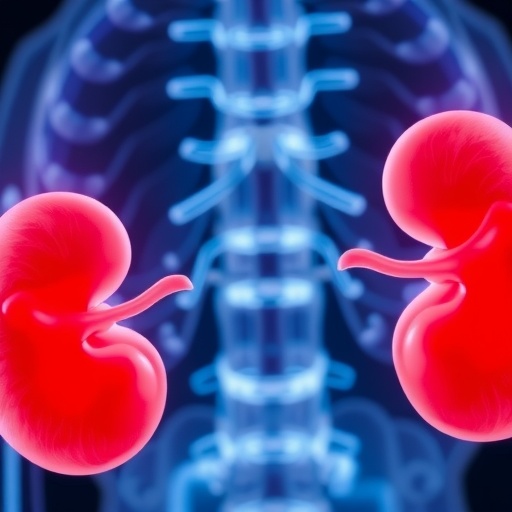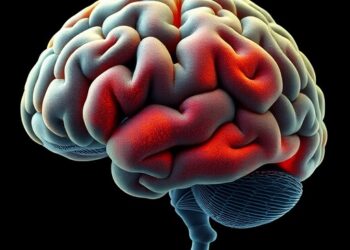In a groundbreaking development poised to revolutionize the treatment landscape for chronic kidney disease (CKD), a research team from Tohoku University Graduate School of Medicine has uncovered a novel therapeutic avenue by repurposing an established drug initially designed for constipation. Chronic kidney disease remains a formidable global health challenge, affecting millions and leading many to premature kidney failure requiring dialysis or transplantation. The absence of approved pharmacological agents capable of halting or reversing renal functional decline has endured despite intensive research efforts. This study, published in the prestigious journal Science Advances, sheds light on how lubiprostone, a drug typically prescribed to alleviate constipation, can exert renoprotective effects by modulating gut microbiota and enhancing mitochondrial function.
Professor Takaaki Abe, leading this innovative research, observed a clinical correlation frequently overlooked in nephrology: constipation is a common comorbidity among CKD patients. This association prompted a deeper exploration into the mechanistic interplay between gastrointestinal health and kidney function. “Constipation disrupts the intricate balance of intestinal microbiota, which in turn exacerbates kidney dysfunction,” Abe explains. By targeting and correcting this disruption, they hypothesized it might be possible to mitigate the progression of CKD. This hypothesis laid the foundation for an ambitious clinical trial evaluating the efficacy of lubiprostone beyond its traditional use.
The multicenter Phase II clinical trial, termed the LUBI-CKD TRIAL, was conducted across nine Japanese healthcare institutions and enrolled 150 patients diagnosed with moderate stage CKD. The trial meticulously assessed changes in renal function using the estimated glomerular filtration rate (eGFR) as a quantitative biomarker. Patients received either placebo or doses of 8 µg or 16 µg of lubiprostone daily. The researchers reported a dose-dependent suppression of eGFR decline in the treatment arms, highlighting the drug’s capacity to preserve kidney function over the trial period. This discovery heralds a significant shift in CKD management, offering a pharmacological approach that directly impacts disease progression rather than merely addressing symptoms or secondary complications.
Beyond clinical observations, the research delved into the biochemical and microbiological mechanisms underpinning these effects. Central to lubiprostone’s therapeutic action is its influence on the gut microbiome, particularly in promoting the proliferation of beneficial bacteria capable of synthesizing polyamines such as spermidine. Spermidine plays a crucial role in cellular metabolism by enhancing mitochondrial function, the cellular powerhouse responsible for energy production and metabolic homeostasis. Dysfunctional mitochondria are a recognized contributor to CKD pathogenesis, leading to oxidative stress and inflammation. By boosting spermidine production, lubiprostone indirectly revitalizes mitochondrial performance, mitigating cellular damage and inflammation within renal tissues.
This intricate interplay between intestinal microbiota and kidney health underscores the emerging concept of the gut-kidney axis in renal medicine. Alterations in gut microbial composition can precipitate systemic effects influencing distant organs, including the kidneys. The study’s findings reinforce the premise that maintaining intestinal microbial homeostasis is pivotal for systemic organ health, expanding the therapeutic horizons for a range of diseases characterized by mitochondrial impairment. Lubiprostone’s ability to modulate this axis offers a promising model for future research targeting microbiota-mediated metabolic pathways.
Moreover, the anti-inflammatory properties tied to improved mitochondrial activity represent a dual mechanism whereby lubiprostone confers renal protection. Inflammation drives the progression of CKD and contributes to the deterioration of nephron function. By suppressing inflammatory pathways through mitochondrial rejuvenation, lubiprostone not only preserves eGFR but potentially reduces further pathological insults to the kidney. This dual-action effect distinguishes it from current CKD interventions, which primarily focus on controlling blood pressure, glucose levels, or uremic toxin accumulation but fall short in directly mitigating cellular dysfunction.
The research team emphasizes the transformative potential of this strategy to shift paradigms in CKD treatment. Moving forward, they plan to validate these promising outcomes in larger, more diverse populations through Phase III clinical trials. Additionally, efforts are underway to identify predictive biomarkers that will enable personalized therapeutic regimens tailored to individual patient profiles. This precision medicine approach aims to optimize efficacy and minimize adverse effects, recognizing the heterogeneity inherent in CKD progression and patient responses.
Importantly, the implications of this research extend beyond chronic kidney disease. The mechanistic insights gained regarding the enhancement of mitochondrial function via polyamine pathways may inform therapeutic strategies for a broad spectrum of mitochondrial dysfunction disorders. Such disorders encompass a range of conditions characterized by impaired cellular energetics, oxidative stress, and inflammatory dysregulation. By establishing lubiprostone’s role in modulating these fundamental biological processes, the study opens new avenues for drug repurposing and the development of novel treatment modalities targeting mitochondrial health.
The clinical significance of these findings cannot be overstated, considering the escalating global burden of CKD, exacerbated by aging populations and increasing prevalence of diabetes and hypertension. Current treatment options stave off complications but inadequately address the root causes of renal decline. The introduction of a drug capable of restoring gut microbiota and mitochondrial function presents a paradigm shift with the potential to improve quality of life, delay or prevent dialysis initiation, and reduce healthcare burdens associated with advanced kidney disease.
This study exemplifies the power of interdisciplinary research encompassing nephrology, microbiology, and cellular physiology. It highlights the necessity of considering systemic interactions, such as the gut-kidney axis, in developing comprehensive therapeutic strategies. Furthermore, the utilization of a well-established, generally safe drug like lubiprostone expedites potential clinical application, offering hope for more immediate benefits for CKD patients worldwide.
In summary, the successful demonstration of lubiprostone’s renoprotective effects via modulation of gut microbiota and mitochondrial enhancement represents a milestone in CKD research. By leveraging the drug’s dual effects on polyamine production and inflammation suppression, this approach stands to redefine treatment paradigms and inspire future investigations into microbiota-centric therapies. As Phase III trials loom on the horizon, the nephrology community eagerly anticipates further validation and potential integration of this strategy into clinical practice, ushering in a new era of kidney disease management.
Subject of Research: Chronic Kidney Disease (CKD), gut microbiota, mitochondrial function, polyamines, renoprotection
Article Title: Lubiprostone in Chronic Kidney Disease: Insights into Mitochondrial Function and Polyamines from a Randomized Phase 2 Clinical Trial
News Publication Date: 30-Aug-2025
Web References: 10.1126/sciadv.adw3934
Image Credits: ©Shun Watanabe
Keywords: Chronic Kidney Disease, lubiprostone, gut microbiota, mitochondrial function, polyamines, spermidine, Phase II clinical trial, renoprotection, inflammation, microbiota-gut-kidney axis, drug repurposing, mitochondrial dysfunction disorder











